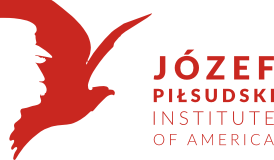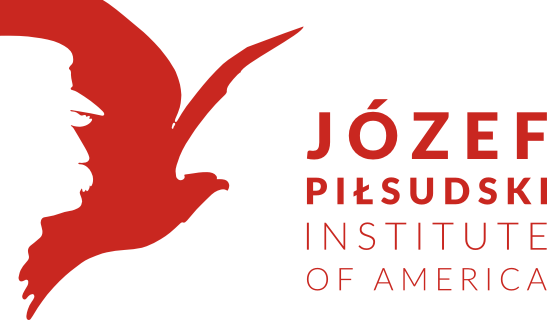The archives of the Józef Piłsudski Institute hide many secrets, and although all the collections are now widely available and anyone interested in history has access to the documents that was not always the case. In the past, some of the documents were secretly kept.
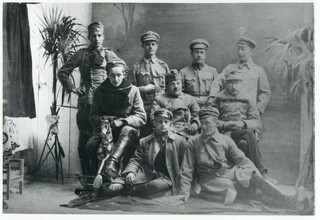 Marian Chodacki at the Polish Legions 1915, from the Pilsudski Institute Archives
Marian Chodacki at the Polish Legions 1915, from the Pilsudski Institute Archives
A perfect example is the “Estezet” collection, donated to the Institute by the former Executive Director, Marian Chodacki. The collection covers Polish intelligence’s activities in South and North America between 1941-1945. At that point, the Consulate General of the Republic of Poland in New York, was the headquarter of the Polish secret service in the USA. Due to the risk of top-secret information falling into undesirable hands, including the personal details of Polish intelligence agents, the “Estezet” collection was hidden for years and only accessible to insiders.
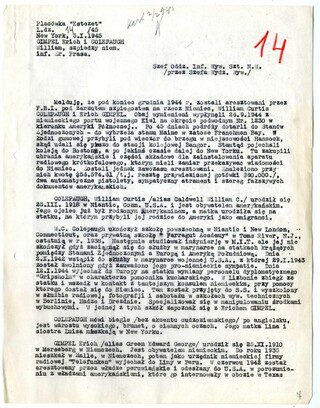 Report of Estezet secret intelligence unit
Report of Estezet secret intelligence unit
Marian Chodacki was an interesting character himself. Major of the Polish Army, intelligence officer and the last Polish Commissioner General in the Free City of Danzig, was a representative of the generation that won Poland's independence in 1918 and later laid the foundations of the Second Polish Republic. As the Commissioner of the Republic of Poland in Gdańsk, he was well aware of the threat posed by the Germans. On September 1, 1939, immediately after the Nazis’s attack on Gdańsk, Chodacki was arrested, luckily, his diplomatic passport spared him from imprisonment and Chodacki was released few days after the arrest at the border with Lithuania. Sharing the fate of his many friends, he spent the later years in exile in the United States, on September 1, 1943, becoming the head of the polish secret intelligence service unit Estezet.
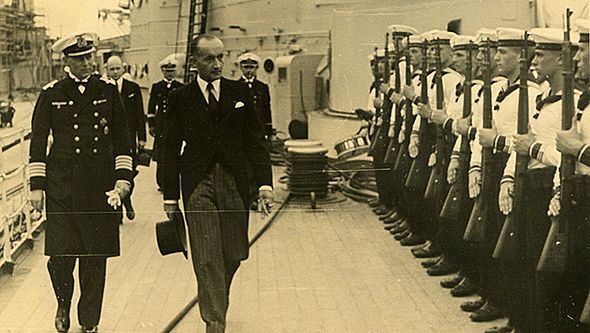 Chodacki 's official visit to Schleswig-Holstein August 1939r. (Museum of the World War II)
Chodacki 's official visit to Schleswig-Holstein August 1939r. (Museum of the World War II)
Based on an agreement between Polish and American intelligence forces, Estezet’s activity covered: the United States, Canada, Brazil, Argentina, Chile, Paraguay, Uruguay, Peru and Bolivia. Initially, the information provided to the Americans concerned the political, military and economic situation in Poland and Europe, as well as German intelligence activities in both Americas. As time passed, the spy network was being developed and Polish citizens, strongly involved in the activities of the Polish diaspora, were encouraged to cooperate. The unit focused on penetrating circles sympathetic to the communist circles.
Although “Estezet” was set up as a unit of Polish-American cooperation, in reality, Poles provided information to the Americans; this way, the Polish government-in-exile hoped to gain political benefits. As the situation developed, after the Yalta conference, the head of "Estezet" had less illusions about the future of Poland and the cold political calculation of the Allies. Aware that once communist dominated government would be established in Poland, he and his employees would be in danger, in March 1945, Chodacki secretly transferred the intelligence documents to the Sisters of Nazareth in Torresdale convent’s in Pennsylvania. In 1959, the archive was secretly transported from Pennsylvania and deposited at the Józef Piłsudski Institute of America, where Chodacki was the executive director. There, the collection remained unidentified and undiscovered until Chodacki’s death in 1975. Access the ESTEZET collection.
In 2019, Marian Chodacki was posthumously promoted to the rank of lieutenant colonel, and named the patron of the Military Intelligence Training Center in Poland. In January 2023, an obelisk commemorating this exceptional officer was unveiled at the Museum of the Second World War in Gdańsk.
Pilsudski Institute of America online collections.



